Freddie
seba
GenAI Ethics Speaker and Leading Expert Transformational Insights for Leaders







10+ Years in AI
Keynotes
Leading in the Era of GenAI Ethics
Empowering leaders to leverage AI for transformative change.
Key Benefits for Leaders:
- Harness the Transformative Power of Generative AI. Discover how AI is reshaping industries and creating opportunities for growth and innovation.
- Understand Ethical Challenges. Learn to identify and address critical ethical dilemmas, from bias and privacy to societal impacts.
- Identify the Role of Leadership in AI-Driven Organizations. Explore how ethical leadership drives trust, accountability, and success in AI adoption.
- Strategize AI Policy Development. Gain insights into crafting policies that align with global regulations and organizational goals.
- Construct Actionable Frameworks for Responsible AI Innovation. Take home practical strategies for embedding ethical AI practices into your business.
- Prepare for the Future of Work with AI. Understand how to balance human-centered approaches with the technological advances of AI.
Executive Workshops
Customizable 1-3 Days
In-depth sessions tailored to leadership-specific needs
Key Benefits for Leaders:
- Master the Fundamentals of Generative AI. Understand how AI is reshaping industries and its implications for strategic leadership.
- Navigate Ethical Challenges. Address critical issues like bias, privacy, inclusivity, and the societal impacts of AI.
- Analyze Real-World Case Studies. Gain insights from education, healthcare, and finance examples to identify AI’s transformative potential and ethical risks.
- Lead with Confidence and Responsibility. Equip yourself with the knowledge and tools to drive ethical AI integration and policy development in your organization.
- Deep Dive into Ethical AI Integration. Explore strategies for embedding ethical AI practices into your organization’s core operations.
- Develop Policy and Strategy. Learn to craft comprehensive policies that balance innovation with ethical responsibility.
Fireside Chats
Virtual
Designed to keep leaders ahead in a rapidly evolving AI environment
Key Benefits for Leaders:
- Guidance on GenAI Ethics and Strategy. Learn how to develop and implement strategies that ensure your organization’s GenAI initiatives are both innovative and ethically sound.
- Interactive Discussions on GenAI Ethics and Strategy. Collaborate to refine your organization’s approach to GenAI, ensuring it aligns with ethical standards and strategic goals.
- Flexible Learning Tailored to Leaders’ Schedules. Access live sessions that fit seamlessly into your busy leadership role.
- Comprehensive Insights and Best Practices. Align your GenAI initiatives with international best practices to drive responsible innovation and maintain a competitive edge.
A global thought leader in GenAI ethics
Freddie Seba is a distinguished thought leader and educator specializing in Generative AI ethics. He holds an MBA from Yale, an MA from Stanford and is pursuing a Doctorate in Education at the University of San Francisco (USF), focusing on GenAI Ethics. Since 2017, Freddie has served as the program director for the Masters of Science in Digital Health Informatics at USF’s School of Nursing and Health Professions (SONHPHe he teaches and mentors graduate studen in this program and collaborates closely with the healthcare ecosystem. He developed and taught a course on Generative AI Ethics in Educational and Healthcare Ecosystems. Freddie is a seasoned Silicon Valley entrepreneur, co-founding and working with innovative startups in financial services and healthcare. As a speaker and writer, Freddie inspires others to navigate GenAI ethics complexities with purpose.
Most recently, he co-founded StudyStudio.ai, which drives advancements in AI for education with a focus on GenAI ethics. Freddie’s corporate experience includes senior roles at global corporations BBVA, Epson América, and Ingram Micro. Committed to advancing ethical standards in AI, Freddie is an active member of USF’s Academic AI Task Force and several other committees. He works on a GenAI research paper and several publications on GenAI Ethics. As a mentor and speaker, Freddie inspires others to navigate GenAI complexities with integrity and purpose.

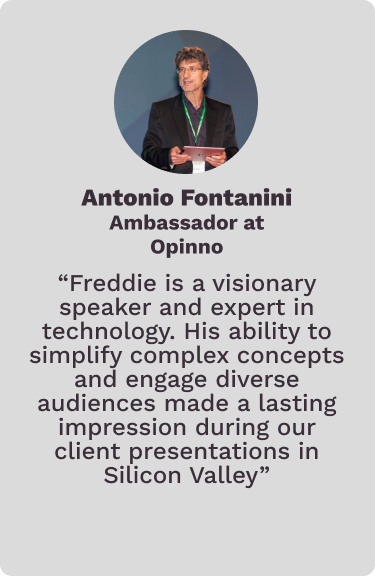

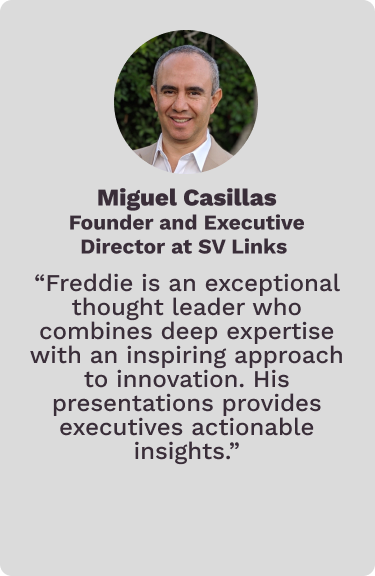

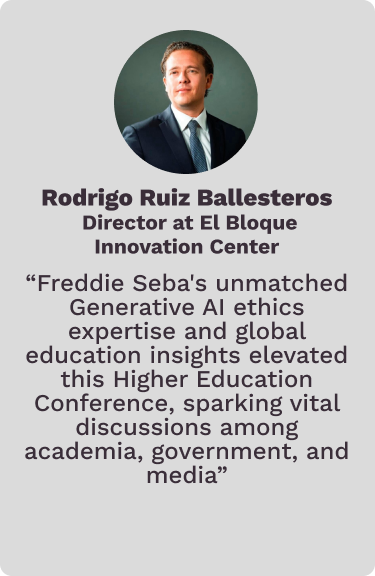
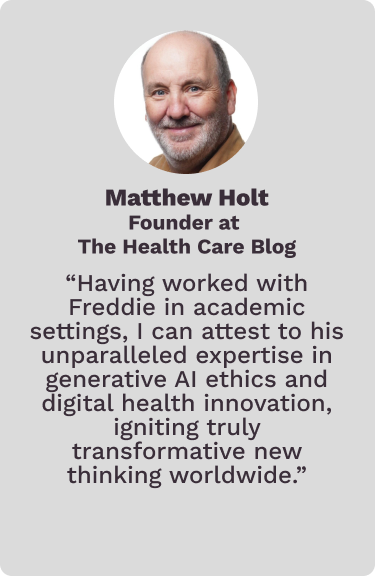
GenAI Ethics: A Leadership Guide
What I am reading today...
GenAI Ethics Upcoming Publications
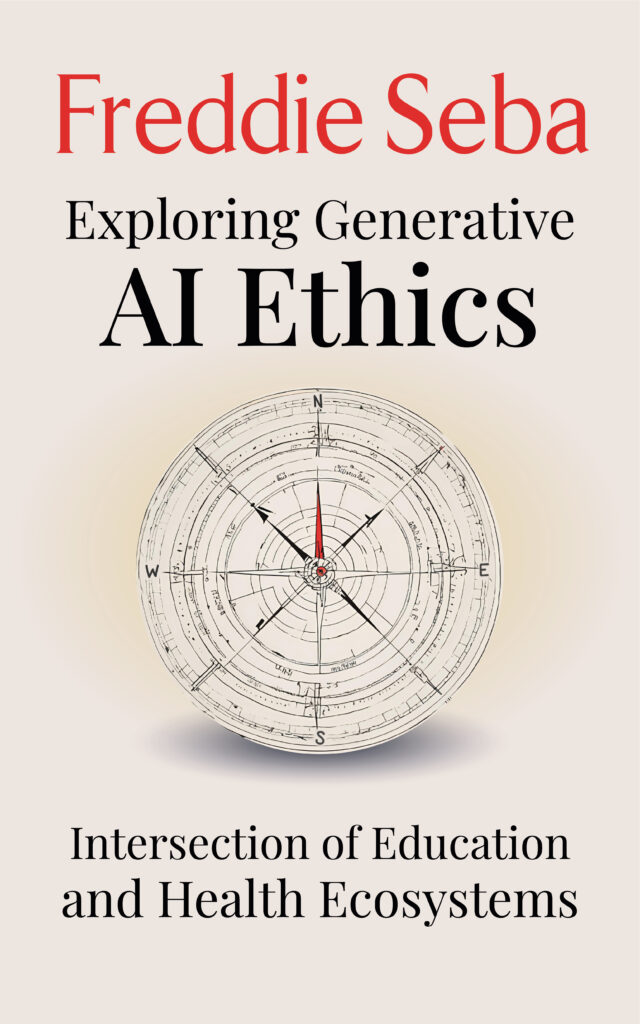
Generative AI transforms education and healthcare, presenting extraordinary opportunities and critical ethical challenges. Exploring Generative AI Ethics offers a comprehensive and practical guide for educators, healthcare professionals, leaders, and curious non-technical readers to harness this transformative technology responsibly.
This book builds on insights from a pioneering course designed and taught by the author in Fall 2024 at a mission-driven university in California. Combining innovative literature, cutting-edge articles, and real-world studies, the book equips readers with actionable strategies to effectively understand and leverage Generative AI.
Focusing on a human-centered perspective, this resource examines the implications of Generative AI for key areas such as electronic medical records, population health, clinical trials, mental health, personalized
education, and workforce training. It also provides a deep dive into policy frameworks, exploring global, national, and state-level evolutions to empower leaders with the knowledge to inform strategies within their organizations.
Through real-life case studies, ethical frameworks, and practical tools, readers will learn to critically evaluate Generative AI’s impact while safeguarding equity, privacy, and ethical care. Whether you’re leading AI-driven initiatives or adapting to the rapidly changing landscape, this book offers the roadmap to navigate the intersection of Generative AI and human innovation.
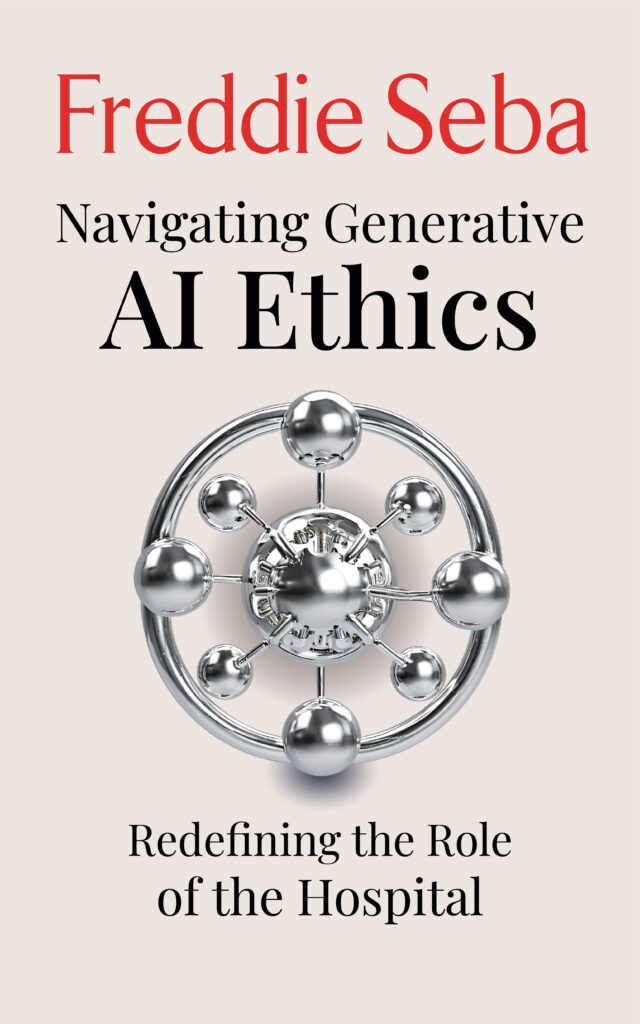
This book is a practical exploration of consumer health informatics, integrating the transformative potential of generative AI ethics. Based on a dynamic and innovative course, it bridges the gap between theory and practice to empower educators, practitioners, and technology developers.
The book examines key consumer health issues through the lens of information technology, exploring topics like mental health, health coaching, telehealth, and mobile healthcare applications.
Readers will learn to apply Design Thinking principles to create prototype systems tailored to consumer needs, grounded in behavioral, social, and environmental science theories.
With a focus on actionable insights, the book provides tools to assess health-related needs and practices, evaluate mobile technology approaches, and design, implement, and assess cutting-edge applications to influence consumer health behaviors. By weaving ethical considerations and generative AI into every chapter, this work equips readers to harness technology responsibly to improve health outcomes.
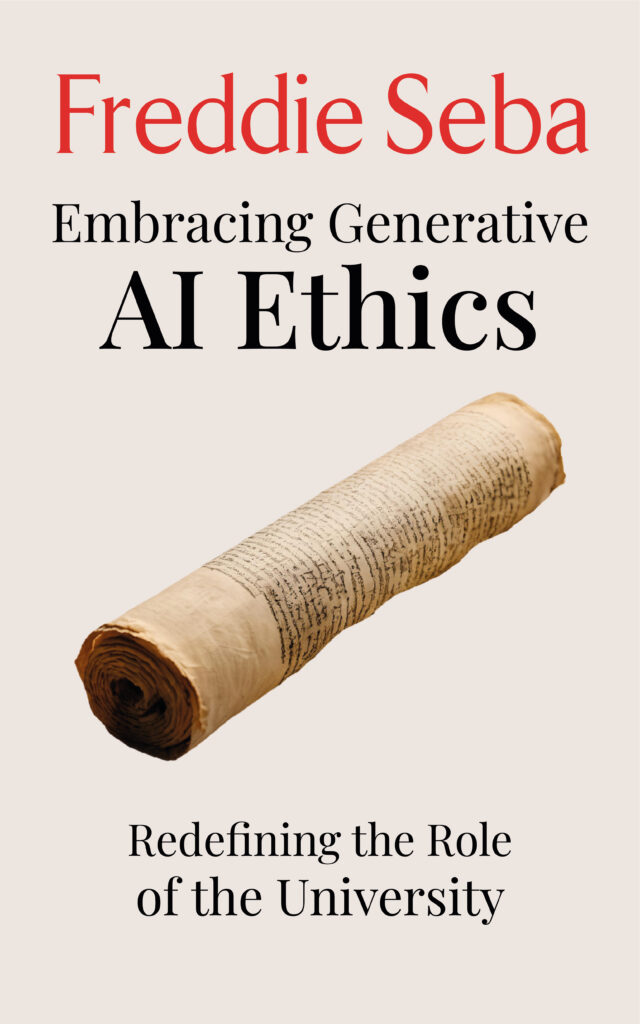
Generative AI is transforming the world of education, taking over tasks that once defined universities’ core mission—teaching, mentoring, brainstorming, and even skill-building. As AI continues to excel in delivering personalized learning, offering instant mentorship, and facilitating creative thinking, the role of higher education institutions is at a crossroads.
This book explores how universities can evolve to remain essential in the age of GenAI. While AI can outpace humans in knowledge transfer and skill training, universities uniquely foster critical thinking, personal growth, and social networking—roles beyond technology’s capabilities. From the rite of passage of leaving home to the nuanced development of ethical reasoning and human connection, higher education institutions offer experiences that algorithms cannot replicate.
Through a thought-provoking analysis of emerging trends, practical strategies, and real-world examples, Redefining the Role of the University charts a path forward for universities to reclaim their relevance. It addresses key questions, including:
- How can institutions cultivate human-centric skills such as empathy, creativity, and ethical judgment?
- What new roles should educators and administrators embrace in a GenAI-driven world?
- How can universities leverage AI to enhance their strengths rather than compete against it?